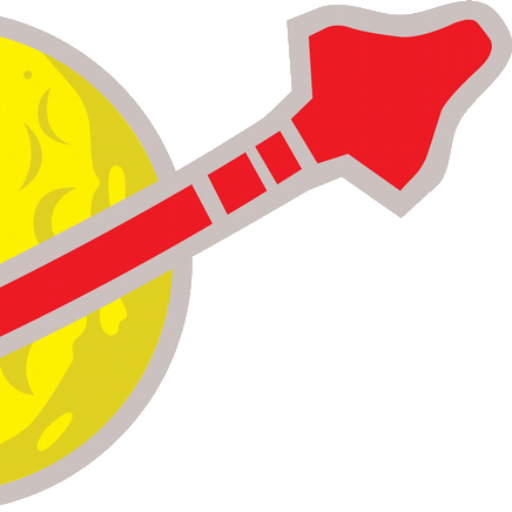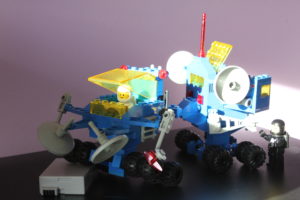Geology / Planetary science
- Detailed reserach on the detailed geological structures from surface down to large depth
- In contrast to Surface Explorar / Sismobile combination, USV has much higher resolution and differentiation however lower swath
- Suitable for local detailed research (slow movement during research campaigns
- Front sitting downfacing radar dishes scan the surface, but can be turned sideways to increase swath (but lower resolution / depth)
- Side pointing dishes on rear section are scanning ground / atmosphere boundary layer, e.g. to measure gas /dust jets (e.g. material composition, amount, speeds,etc) on the surface of comets or ice moons
- Science Instrument control is done from the rear cabin, driver is responsible for direction and overall vehicle control
- Grid wings on the rear section can be extended for additional analysis capacity for gas / dust jets
- USV can also be steered directly into a gas / dust / material jet and take in-situ measurements. In this case, driver and lab cabinet have to be closed.
- On asteroids the focus is clearly on ground /geology, however still the side facing dishes can be used to investigate thin atmosphere (e.g. similar to Lunar atmosphere of small dust particles)
- USV is also part of the hazard team to scan for dangerous compounds / chemical

